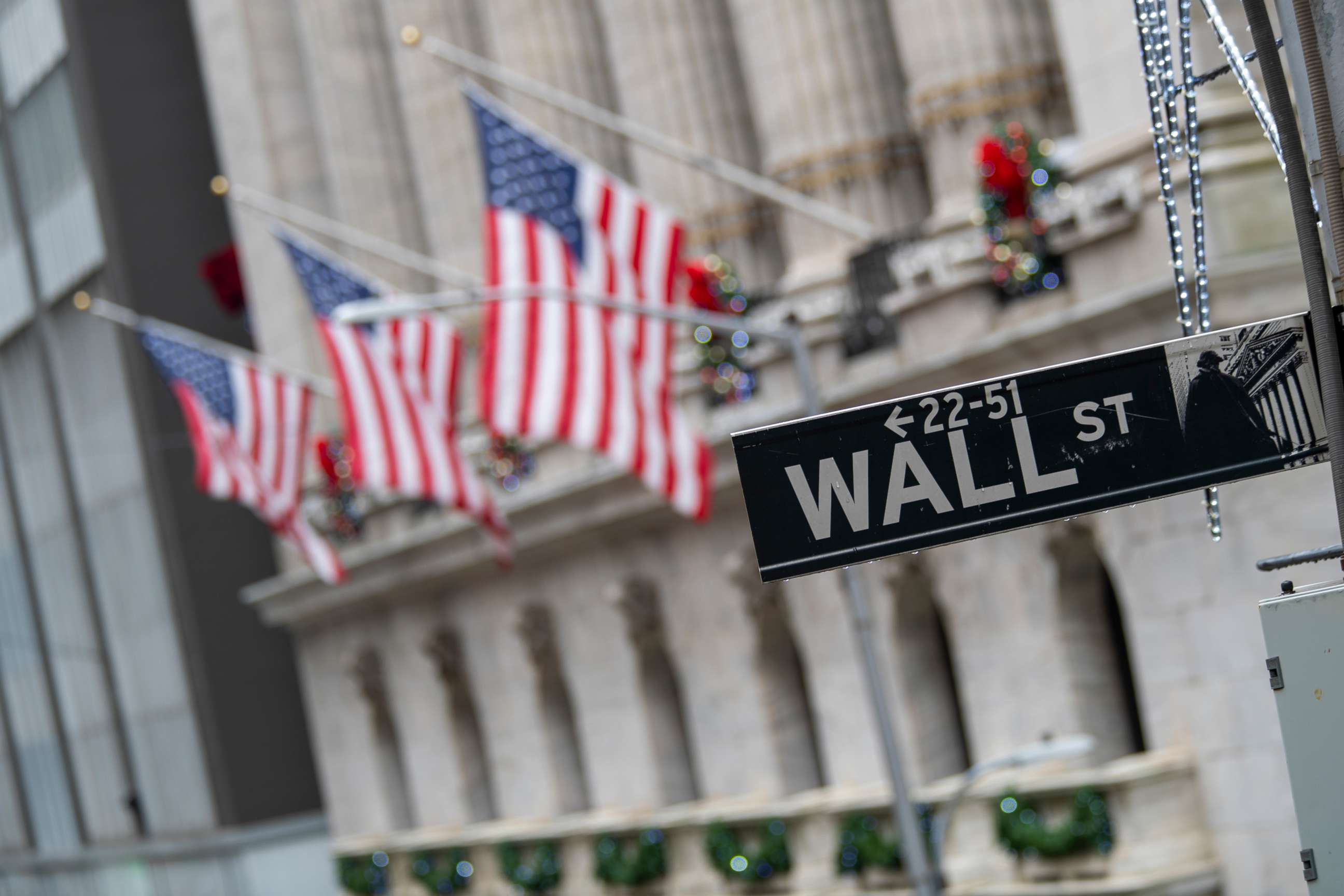Coronavirus economic updates: IMF predicts the worst recession since the Great Depression
Here is the latest on the COVID-19-induced financial crisis.
The coronavirus pandemic has quickly evolved from a health care crisis to a financial one, shuttering businesses, upending industries and sending financial markets reeling.
Here's the latest news on how the COVID-19 crisis is affecting the economy. For more on financial resources available during the pandemic, click here.
Here's how the day is unfolding. Please refresh for updates.

Financial markets rally Tuesday
U.S. financial markets rallied on Tuesday, with the Dow Jones Industrial Average up more than 550 points, or 2.4%, at the close.
The S&P 500 rose 3% and the Nasdaq was up nearly 4%.
Among the best performers for the Dow Tuesday were Raytheon Technology Corp, Walgreens, Apple and Microsoft. Amazon shares hit an all-time high, spiking more than 5%.
The worst performer for the Dow was Boeing, which shed 4.3%.
Investors seemed to welcome signs that parts of the economy were preparing to reopen and the pandemic was near its peak.
In Europe, a limited number of stores and small businesses were allowed to reopen Tuesday in Italy.
In the U.S., governors on both coasts announced they were working on plans to allow businesses to resume.
Kroger and UFCW union call for grocery workers to be designated as first responders
The grocery chain Kroger and UFCW, America's largest food and retail union, called for lawmakers to designate grocery workers as "extended first responders" amid the coronavirus pandemic.
The group said the new status would allow them to gain priority access to personal protective equipment such as masks and gloves.
"This urgent call for temporary first responder or emergency personnel status is not just about protecting grocery store workers; it is also about protecting the customers they serve and our nation’s food supply in general," Kroger CEO Rodney McMullen and UFCW International President Marc Perrone said in a joint statement. "We urge our national and statewide elected leaders to act now and protect these essential workers."
GM begins mass production of ventilators
General Motors announced Tuesday it had started production of ventilators as part of its contract with the U.S. Department of Health and Human Services.
"Thousands of men and women at GM, Ventec, our suppliers and the Kokomo community have rallied to support their neighbors and the medical professionals on the front lines of this pandemic," GM CEO Mary Barra said in a statement. "Everyone wants to help turn the tide and save lives. It is inspiring and humbling to see the passion and commitment people have put into this work."
The automakers have a partnership with Ventec to delivery 30,000 ventilators to the federal government.
"More than 600 ventilators will be shipped this month, almost half the order will be filled by the end of June and the full order will be completed by the end of August," the company said in a statement. "GM has the capacity to build more ventilators after August if needed."
It joins a growing list of carmakers that have offered to build ventilators amid the pandemic.
IMF calls 'Great Lockdown' worse than 'the worst recession since the Great Depression'
The International Monetary Fund released its 2020 World Economic Outlook on Tuesday, projecting the global economy will contract by 3% as a result of the COVID-19 pandemic, a steeper decline than the 2008-2009 financial crisis.
The group forecast that the cumulative loss to the global GDP from 2020 to 2021 as a result of the pandemic could be approximately $9 trillion, or more than the economies of Japan and Germany combined.
Gita Gopinath, the economic counsellor and director of research at the IMF, referred to the contraction as "the Great Lockdown" in a blogpost, saying it will be "the worst recession since the Great Depression, and far worse than the Global Financial Crisis."
"This is a truly global crisis as no country is spared," Gopinath wrote. "Countries reliant on tourism, travel, hospitality, and entertainment for their growth are experiencing particularly large disruptions."
Gopinath added that emerging markets and developing economies "face additional challenges with unprecedented reversals in capital flows as global risk appetite wanes, and currency pressures, while coping with weaker health systems, and more limited fiscal space to provide support."
On Monday, the IMF also announced it would provide debt relief to 25 countries through its Catastrophe Containment and Relief Trust.
"This provides grants to our poorest and most vulnerable members to cover their IMF debt obligations for an initial phase over the next six months and will help them channel more of their scarce financial resources towards vital emergency medical and other relief efforts," Kristalina Georgieva, the managing director of the IMF, said in a statement.
The CCRT can provide up to $500 million in "grant-based debt service relief," Georgieva added. Among the countries to receive the debt relief are Afghanistan, Sierra Leone and Yemen. =




